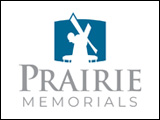Recently I came across an article written by Gisela Webb titled “Intimations of the Great Unlearning: Interreligious spirituality and the demise of consciousness which is Alzheimer’s”. I wonder why professors always have to have such complex titles. The title nearly turned me off as I just wasn’t sure where this article would go. But I was intrigues so I read the article anyway and I am glad I did.
In the article she writes from both a personal perspective and an intellectual one. The personal perspective came from her own experience. Her mother had Alzheimer’s and she was intimately involved in caring and learning how to care as the disease progressed. Her intellectual perspective comes from her role as the Associate Professor of Religious Studies at Seton Hall University in New Jersey.
Professor Webb calls Alzheimers “the great unlearning”. In the article she writes, “I call Alzheimer’s the great unlearning, because it is clearly an unraveling of mind, language and former knowledge”. Now I am not an intellectual and in my humble musings I dare not parrot words and concepts that I can’t fully comprehend myself but if I might I would like to reflect with you about this “great unlearning”.
If you have been involved at all with as person with this disease, you will immediately understand this description of the disease for Alzheimer’s is a disorder that seems to move a person backwards towards childhood and infancy; from independence to ever increasing dependence; and from an understanding of one’s place in the world to an unconsciousness of one’s place in the world.
This is part of the struggle that husbands and wives and children and siblings and friends of a person with this disease struggle with. In the adult mind, we have an extremely difficult time conceiving of an adult regressing, moving backwards, unlearning. Especially in our culture with its emphasis on being lifelong learners, in moving forward, in attaining new heights – to move backwards is seen as simply WRONG. Even with an acknowledgement that there is a disease process that is responsible, accepting this “great unlearning” takes many people years and causes untold and unnecessary confusion, emotional dissonance and spiritual struggle.
So often in our unwillingness to accept the diagnosis, we push and urge and get frustrated as the one with Alzheimer’s begin the slow and steady process of unlearning. We want them to “try harder” to “work at it”; e image that they are just being careless or that they don’t care. The “great unlearning” not only dislodges the person with Alzheimer’s from the trajectory he or she was on but it dislodges the trajectory of the lives of all who are close and care. It takes awhile for the love one’s to figure out how to embrace and get in step with the backward movement of the one with Alzheimer’s. Until that happens, the results are often heartbreaking.
Spiritually, Professor Webb speaks of the importance of recognizing the value of religious ritual: the sights and sounds and familiar movements of a person’s spirituality which were laid down early in life. I have learned much in my care for our residents at Bethesda Place as I have embraced a different approach to worshipping with our residents with dementia and Alzheimer’s. I have become more attentive to designing my chapel times around these deep and early religious experiences of our residents.
This is challenging in a public facility where the religious heritage of the residents is varied. Fortunately for me, there is sufficient homogeneity spiritually that I have found a way of worshipping that is satisfying for our residents and for me. Chapel times are happy times, they are filled with familiar melodies, familiar prayers and with a repetitive ritual that engages our residents. The themes are few, repeated often and central to their faith. Lips that rarely move can be seen forming the words of familiar hymns and prayers. Feet and fingers can be seen to tap to familiar melodies, eyes growing dim can be seen to brighten when in the context of worshipping together there is a sense of “I know what this is all about” in the looks of those who participate.
It also helps to embrace the residents understanding of who I am. To some I am their priest, to others their “praediger” Low German for pastor (forgive the spelling, I asked three different people and got three different spellings). Some who served in the military I am the “padre” and any of them are just fine. For I serve a place in their life that they are connecting with, that solicits (for many) comfort and a sense of well being. Generally I am uncomfortable with every honorific title, despite the fact that I am a credentialed pastor with the denomination I have served in for 36 years. But I have come to understand that insisting that I am “just Larry” although it helps build rapport in the hospital especially with folks who are unchurched it is not a useful insistence with those who are “unlearning” and need anchors to help them understand their ever more confusing world.
I also have learned the importance of sincere apology in working with our residents who have Alzheimer’s. I apologize often. What for? I apologize for my forgetting to meet them where they are. If I am with one of our residents that has Alzheimer’s and I speak and act out of the “present context” but they are living in another “context” and I am met with confusion or impatience, I apologize for being confused. After all, from their perspective I am totally confused and because it is my responsibility to enter their context, for they are unable to live in any other, then it is my error, thus, my need to apologize.
The “great unlearning” is this movement back in time, back in ability, back in comprehension. IT is the incremental loss of all the gains made over a lifetime; a condition that screams for our compassion, understanding, accommodation and care.
Chaplain's Corner was written by Bethesda Place now retired chaplain Larry Hirst. The views and opinions expressed in this blog are solely that of the writer and do not represent the views or opinions of people, institutions or organizations that the writer may have been associated with professionally.



